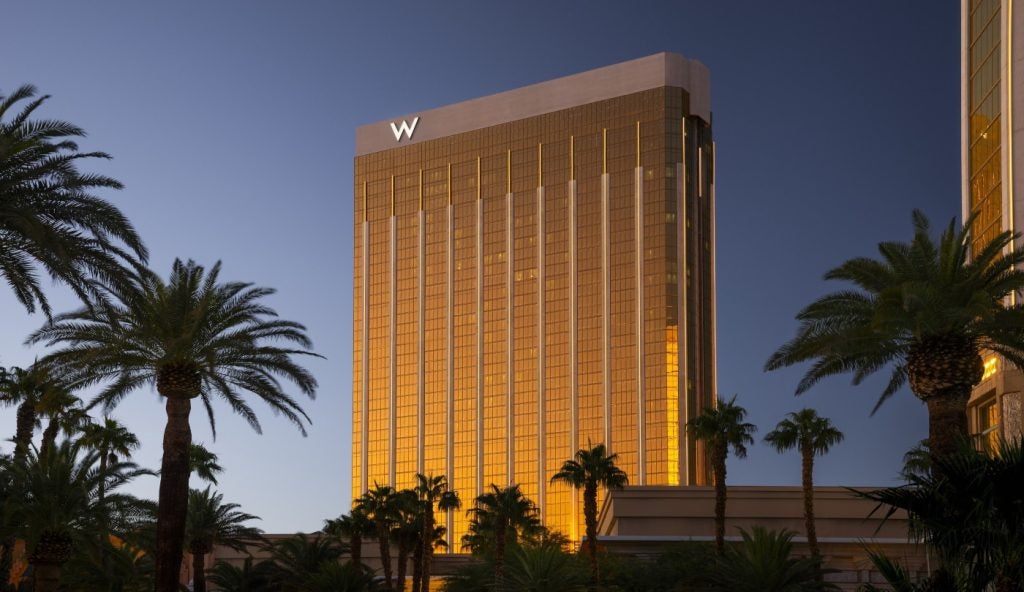
The latest research by Jones Lang LaSalle indicates that the hotel investment market is continuing to improve. According to a recent report, transaction volumes rose marginally to €1.6 billion at the end of H1 2010, representing a 6% year-on-year increase. The busiest area in Europe was the UK, with more than €300 million invested, while France followed closely behind with transactional activity of just under €270 million. The market is expected to continue growing in the latter half of 2010, with volumes potentially doubling those of the previous six months.
What’s more, the market is beginning to throw up the odd surprise. “We were predicting a figure of around €5 billion for the year, and were reticent to increase this number because of the uncertain market. However, there has been quite a lot of growth since 2009,” says Mark Wynne Smith, CEO for Europe, Middle East and Africa at Jones Lang LaSalle Hotels. “We also thought portfolio deals would be difficult, but were surprised by two large deals within the space of a week.” Both transactions took place in August, when the Swedish real-estate firm Pandox purchased Norgani Hotels for a reported €1.33 billion, and Accor sold 48 hotels in France, Belgium and Germany for €367 million.
Across the region, some areas are bouncing back more quickly than others. “There is high net worth in the Middle East, and Paris and London are streets ahead,” continues Wynne Smith. “Investors are also becoming more excited about other cities, such as Barcelona, Geneva and Berlin. These areas offer a better investment story.” By contrast, other markets continue to be challenged. “In central Europe, cities like Budapest and Prague are struggling with room rate growth,” he adds. “Warsaw is in a slightly better position, however.” Research shows that in the first half of the year, domestic capital continued to be the dominant source of investment, accounting for 47% of activity. Investment from European sources grew from 18% to 34%, but interest from the USA continued to be weak.
New markets
Brazil, Russia, India and China, collectively known as the BRIC nations, continue to generate interest. Scott Woroch, executive vice president, worldwide development at Four Seasons Hotels and Resorts, thinks these countries offer significant potential for owners and operators. “Everyone talks about the BRIC countries and these are definitely hotspots for us,” he explains. “We’re getting active in South America, particularly Brazil. This is partly to do with our representation. North America does not have as many opportunities for us as we already have hotels in most major markets.” The company is also focusing its attention on the Asia Pacific region, with a number of hotels in China scheduled to open later in the year.
In such challenging conditions, Woroch believes it is crucial for hotel companies to build powerful brands in order to attract investor interest. “We are fortunate to have a strong brand, and one that is recognised as one of the leading luxury operators,” he says. “We are constantly trying to maintain and enhance it. The strength of the brand drives not only customers to us but also prospective partners looking for new opportunities.”
How well do you really know your competitors?
Access the most comprehensive Company Profiles on the market, powered by GlobalData. Save hours of research. Gain competitive edge.

Thank you!
Your download email will arrive shortly
Not ready to buy yet? Download a free sample
We are confident about the unique quality of our Company Profiles. However, we want you to make the most beneficial decision for your business, so we offer a free sample that you can download by submitting the below form
By GlobalDataFor Woroch, finding the right partners is one of the company’s most important objectives. “We are a hotel management company and we rely on third-party capital and owners to develop,” he continues. “We look for investors who understand Four Seasons and the luxury hotel industry.” Investors typically have a medium- to long-term horizon. “From a personality perspective, we’re a comparatively small company and we establish close personal relationships with our partners. It’s important because everybody has their ups and downs, and it helps us work together when the road is difficult.”
Finding funds
Lending also remains challenging, although some funding is becoming available for carefully-selected developments. “A number of banks are willing to look at very sensible projects – good assets with strong cash flow,” says Wynne Smith. “However, it is still very tough to source debt for some secondary assets.”
Woroch agrees that lending continues to be problem, but one that has streamlined the quality of new openings. “The lack of availability of debt has been the principal challenge,” he says. “Borrowing and lending is more constrained than it has been historically. Developers are proceeding cautiously in the light of the fact that leverage levels have been lower or in some cases non-existent for the last 12 to 18 months. On the flipside, however, it is only projects with the best fundamentals that will move forward.”
In addition, the number of distressed assets has not been as high as expected. “The banks have been going through a very controlled disposal programme, in order to avoid flooding the market with assets that would result in repricing,” explains Wynne Smith. “There are more assets with motivated sellers than six months ago and there will be more still in the next 12 months. We don’t expect to see an increase in distress, and the pipelines have been very carefully managed by the banks.” David Monahan, CEO and general manager of the Las Vegas Hilton, a portfolio company of Colony Capital LLC, thinks the downturn has had a significant impact on the market. “The biggest issue, particularly in cities like Las Vegas, has been the compounded effect of the economy weakening at the same time that many new hotel projects were completed,” he explains. With downward pressure on room rates and hotels forced to cut costs and reduce waste, this can lead to a decrease in service levels that is noticed by the consumer. “This, however, is more than offset by the tremendous consumer values from hotel rates, restaurant and show pricing. The good news would be that when the rate begins to come back, hotels will experience far better bottom line earnings due to the reduced cost basis they have recently built,” he continues. “The winner is now the consumer.”
Monahan, who was previously senior vice president at Colony Capital, also believes the downturn has presented an opportunity for investors. “This comes as a result of the drop in earnings and the inability for hotel properties to meet their financing commitments,” he adds. “New equity has an opportunity to buy out and recapitalise these hotels, or join in as a new equity partner with existing owners in commanding significantly better terms for their money. The hotel business has always been cyclical and when this down cycle comes to an end, based on the operating cost restructuring, hotel earnings should exceed historical norms.”
Bright future
Looking forward, hotel investment levels are expected to continue improving. “We are expecting twice the number of deals in the second half of the year compared with the first,” says Wynne Smith. “The picture is clearly a lot more positive. We expected to see a sustainable, balanced market developing. Our best estimate for total liquidity is roughly 50% of the peak. There is every chance we will be back to the volume of 2004 and 2005 within three years. This is a good moment to be acquiring, particularly hotels that are subject to management contracts.”
Monahan agrees that the industry is beginning to look attractive once more. “Few are ever able to time and to buy exactly at the bottom, and once confidence returns, these extreme discounted opportunities will become fewer and further between,” he says. He also expects to see increased interest from emerging capital markets. “In addition to the impact caused by margin deficiencies in operations that will generate bad investment yields, there is also pent up demand and new markets of international travellers, which should result in an excellent pace of growth.”
New opportunities will also come to light in the coming months, he considers. “These next few quarters should be the ideal time to seize opportunities in hospitality,” he says. “Once locking up a particular purchase, investors would still need time to close the deal, make necessary capital infusion improvements and remarket the repositioned properties to hit the recovery as it occurs. This is a good time to get back into hospitality and gaming investments.”
Woroch also thinks the market will continue to improve. “As the economy recovers and debt becomes more readily available, we will see more investment dollars going back into the sector,” he says. At Four Seasons, the company will be taking advantage of the turning market with a raft of new openings, including hotels in Russia, China, Morocco and Azerbaijan. “This is an active year for us and we hope to see continued recovery and strengthening markets in 2011, both from an operating and performance perspective,” he adds.







